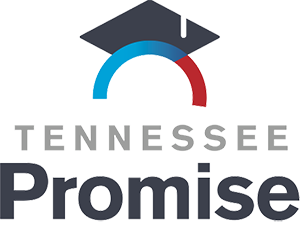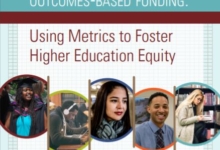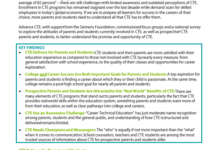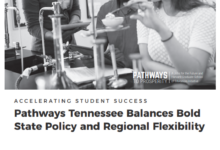 Tennessee Promise provides up to two free years of community college at any of the state’s 13 community colleges or 27 Colleges of Applied Technology in addition to learner supports and mentors that help high school students throughout the college application process. The program is a last-dollar scholarship, meaning it covers college costs not already covered by federal grants. The estimated annual cost of the program started at $34 million and is largely funded through an endowment from the state lottery.
Tennessee Promise provides up to two free years of community college at any of the state’s 13 community colleges or 27 Colleges of Applied Technology in addition to learner supports and mentors that help high school students throughout the college application process. The program is a last-dollar scholarship, meaning it covers college costs not already covered by federal grants. The estimated annual cost of the program started at $34 million and is largely funded through an endowment from the state lottery.
The Tennessee Promise program was proposed in 2014 as part of Governor Haslam’s Drive to 55 initiative, which set a benchmark goal of 55 percent of Tennesseans obtaining a postsecondary credential by 2025. This initiative also included new policies dealing with college remediation, incentives for older adults to return to school, and the governance of the Tennessee Board of Regents.
In order to receive the tuition money, high school students must apply for Tennessee Promise by November of their senior year. They then must attend mandatory meetings with their mentor, where they receive guidance and assistance in applying for college and completing the FAFSA. Mentors come from many different backgrounds and commit to mentoring five to 10 high school seniors for a total of 10 to 15 hours per year. Once a student has been admitted to a postsecondary institution, in order to keep the scholarship, they must maintain a 2.0 GPA and complete eight hours of community service per term enrolled.
If the student follows a Tennessee Transfer Pathway while at community college, once they receive their A.A. or A.S. degree and transfer to a state public four-year institution, they are guaranteed that all courses will count for credit towards completion of a four-year degree.
In 2017, the Tennessee legislature passed the Tennessee Reconnect Act to expand Tennessee Promise and provide tuition scholarships for adult learners. Scholarships will be available to eligible non-degree holding adult students who are admitted into qualifying postsecondary institutions beginning in the fall of 2018. The Tennessee General Assembly Fiscal Review Committee estimates that 9,572 additional part-time students and 4,102 full-time students will be eligible to receive the grant award in Fiscal Year 2018-19, at an estimated cost of $8.5 million.
Policy in Action
Tennessee Promise has seen considerable enthusiasm since it’s inception enrolling nearly 108,000 students since 2015. In that time, it has helped Tennessee students cover over $129 million in college costs
In response to the feedback that some students struggled to fill out the FAFSA and were therefore unable to access the scholarship, Tennessee made some adjustments to the program requirements, including providing more time for students and their families to complete and verify the form. This reform ultimately paid off. In July 2017, Gov. Haslam announced that, for the third year in a row, Tennessee students led the nation in FAFSA completion rates with 73.5 percent of the graduating class of 2017 filling out a form. In the most recent cylce, the FAFSA filling rate was 86 percent.
Retention in Tennessee Promise is also quite high. Almost 9,000 Tennessee Promise students have transferred to a Tennessee public university to continue their education. This number is growing more rapidly as the Promise program matures. Additionally, The Tennessean reports that 56 percent of Tennessee Promise students who entered college in 2015 had graduated, transferred or were still enrolled by 2017 — 17 percentage points higher than students who had not enrolled in Tennessee Promise.
Related Links
- Web Page: Tennessee Promise
- The Tennessean: “Tennessee Promise students more likely to succeed in college, less likely to drop out, new data shows” (2017)
- Research for Action: The Case of Tennessee Promise: A Uniquely Comprehensive Promise Program (2019)
- Report: Tennessee Promise (2021)
- Report: Tennessee Promise (2020)
- Times Free Press: “Tennessee Promise Pushes Two-Year College Enrollment to Unprecedented Level” (2016)
- Center for Economic Research in Tennessee Report: Economic Benefits of Postsecondary Credentials (2016)
- The Atlantic: “Free Tuition is Not Enough” (2015)
- The Manchester Times: “New research shows TN Promise works, but changes could improve results” (2020)
- SB2471: Summary text of Tennessee Promise legislation (2014)
Last updated: August 2021





